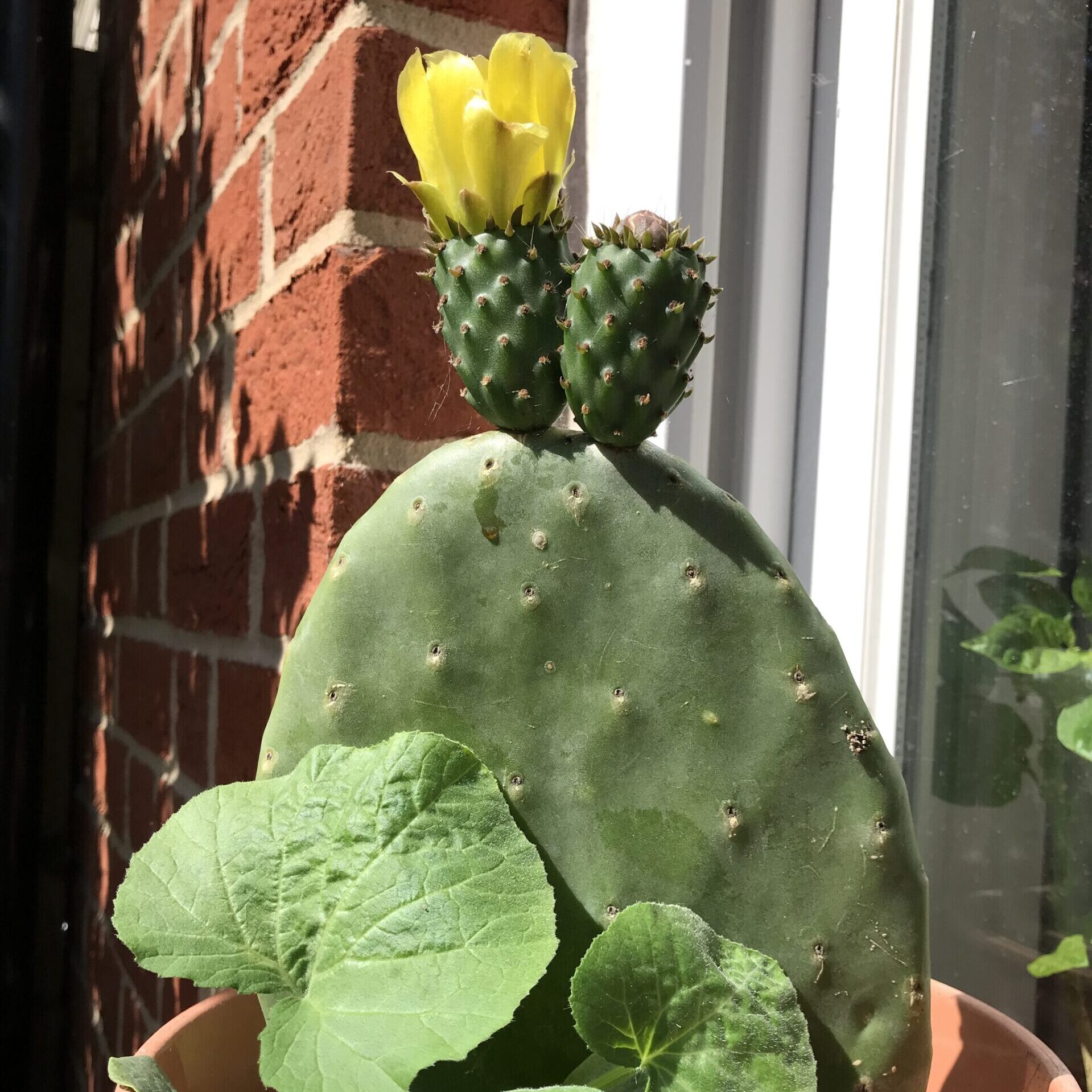Cleaner industrial bioethanol production from sustainable biomass could support the circular economy to achieve Sustainable Development Goals while tackling climate change. Ethanol from the arid plants nopales (prickly pear, Opuntia ficus-indica) offers promising benefits for energy transition, water conservation and food security. However, the environmental impact and energy efficiency of nopal farming and ethanol production in plant-wide biorefineries are unknown. Inorganic production and the classic biorefinery cause undesirable environmental impacts that could be assessed to design better systems. Experiments and analyses of scenarios were performed to propose a cleaner and more energy-efficient farming and ethanol production in a plant-wide biorefinery. Four realistic scenarios considered two fertilisers, two pretreatments and two operational modes. Then, life cycle assessment, energy balances and energy efficiency principles were applied. Scenario 1 was environmentally harmful and energy inefficient (inorganic production and classic biorefinery). Scenario 4 is the cleanest and most energy-efficient (organic fertilisers and ionic liquids with acetone washing in a loop process). Scenario 4 showed the lowest impacts across all categories assessed, including global warming, acidification and eutrophication potentials (1.5 kg eq CO2, 0.004 kg eq SO2 and 0.0006 kg eq PO4, respectively). This enhanced system used the lowest amount of energy (0.33 MJ per MJ of ethanol produced) and showed the best energy efficiency when converting input energy into net energy as ethanol fuel (three-fold of that of scenario 1). Sustainable systems like scenario 4 may offer opportunities for climate risk mitigation, renewable energy production, carbon neutrality and green energy.
How to cite:
Hernandez, J.E., Espinosa-Solares, T., Pérez-Cadena, R., Téllez-Jurado, A., Ramírez-Arpide, F.R., 2024. Sustainable agrobiorefinery system for advanced ethanol production from Opuntia prickly pear cactus nopales. Energy Convers Manag 321, 119052. https://doi.org/https://doi.org/10.1016/j.enconman.2024.119052

